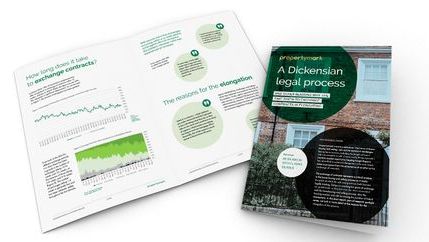Why commonhold isn't that common and how that's about to change
The UK Government has committed to banning the sale of new flats on a leasehold basis and reforming the legal framework for commonhold, so it becomes the default and preferred tenure. It will also become easier for existing leaseholders to convert to commonhold, although the complexities of this may take longer to work out. Few agents in England and Wales have experience with commonhold, as less than 20 developments currently exist, so Propertymark has broken down some key parts of the proposals to help members understand the change.
Data shows Japanese knotweed consistently mistaken
Harmless plants, including Bindweed and dogwood, are frequently mistaken as Japanese knotweed, leading to unnecessary alarm and potential complications during property transactions, and further education is needed to help with identification.
Warning for estate agents after High Court case of misleading details
The buyers of a £32.5 million mansion sued the seller after he failed to give honest information about the state of the property in pre-sale enquiries, particularly, a serious moth infestation. As a result, the court ordered the sale to be reversed, with the buyers receiving a refund of the purchase price plus £4m in damages, including compensation for ruined items.
New limits on Right to Buy will slow down the loss of council homes
The UK Government is proposing changes to the Right to Buy (RTB) scheme intended to create a fairer and more sustainable system which retains the opportunity for social housing tenants to buy their homes while supporting councils to replace properties that are sold. Propertymark is supportive of the proposals, which include increasing the length of time someone needs to have been a public sector tenant, amending discount percentages, and allowing Councils to ask for repayment of discounts if the property is resold within ten years.
Minister announces new plans to drive down property transaction timescales
Matthew Pennycook, MP, stated that the UK Government will work with HM Land Registry to digitise property data, making information more accessible and reducing delays caused by manual processes. This move is expected to streamline transactions and provide agents quicker access to essential property details.
Bureaucracy-busting is Reeve's next move to boost house building
The Chancellor of the Exchequer revealed more about the UK Government’s plans to accelerate housebuilding and reform the planning system in a speech delivered on 29 January 2025. Highlighting the role of housing in economic growth, she announced measures designed to unlock development, remove planning barriers, and encourage investment in infrastructure projects.
ESW1 warnings: what agents need to know about invalid fire safety forms
Recent developments concerning the company Tri Fire and one of its assessors have raised significant concerns over the validity of the EWS1 forms they have issued. Major banks are refusing to lend on properties assessed by Tri Fire, potentially causing delays or halts in property sales and remortgages.
Proposed overhaul of Energy Performance Certificates will impact the entire property sector
The UK Government has unveiled plans to reform the Energy Performance of Buildings (EPB) framework in England and Wales, with sweeping changes to the way Energy Performance Certificates (EPCs) are structured, used, and valued. Both commercial and residential agents, landlords, and property owners will need to renew their EPCs more often, and some exemptions, for example for heritage properties, may no longer apply.
Auctions are a buyer's friend in the dash to avoid Stamp Duty increases
Choosing to sell properties by chain-free auction can avoid lengthy and uncertain buying procedures and save buyers time and money ahead of the Stamp Duty Land Tax increases in April 2025.
Making identity proofing easier, cheaper and more secure
The Data (Use and Access) Bill was introduced to Parliament on 23 October 2024. It lays out the legal framework for Digital Verification Services (DVS) in the UK, which are long-awaited tools to speed up property purchases, reduce fraud and improve the experience of home buying and selling.
What estate agents need to know about the Renters Rights' Bill
Agents working with landlords who want to sell a property with sitting tenants must be well-versed advising clients effectively on realistic pricing and the potential impact on the buyer pool, and with tenancy reform at the heart of the Renters’ Rights Bill, watertight paperwork and record-keeping will be more important than ever, for buyers, sellers and agents.
The UPRN is a vital part of the digital property market infrastructure
Propertymark, alongside organisations from the UK property sector, has reopened dialogue with the UK Government to outline three key actions Ministers should consider during this parliament: embedding the Unique Property Reference Number (UPRN) in public sector projects, enabling market adoption, and ensuring ethical data use.
Fears that suspicious payment powers could delay property transactions
From the end of October 2024, UK banks will be able to hold payments for up to four days whilst investigations of potential fraud are carried out, raising concerns that the large transactions needed for property purchases may be incorrectly blocked. The change follows stricter rules on fraud compensation which came into force on 7 October 2024, meaning that banks must refund scam victims up to £85,000 within five days.
HM Land Registry announces first-in-a-decade fee increase for information services
From 9 December 2024, fees will double for accessing and obtaining copies of title plans and registers – the first change to the cost in more than 10 years – and customers with automated systems are advised to make the necessary changes to their systems before the implementation date. According to HMLR, even with this increase, most customers will pay less than in 1992.
EPCs must feature in property listings
Under the Energy Performance of Buildings (England and Wales) Regulations 2012, a valid EPC rating must be shown in any property listing produced by the seller, landlord, or agent, unless the building has a valid exemption. This includes listings on property portals, window displays, and any printed material. Failure to comply with the law could result in a fine of £200 per advertisement.
Spotlight: A Dickensian legal process
Propertymark's monthly Housing Insight Report has identified a significant deterioration in the number of transactions progressing from offer acceptance to exchange of contracts within 12 weeks. In the first of our research spotlight series, this report looks into the reasons why the time taken to exchange contracts is elongating.
















